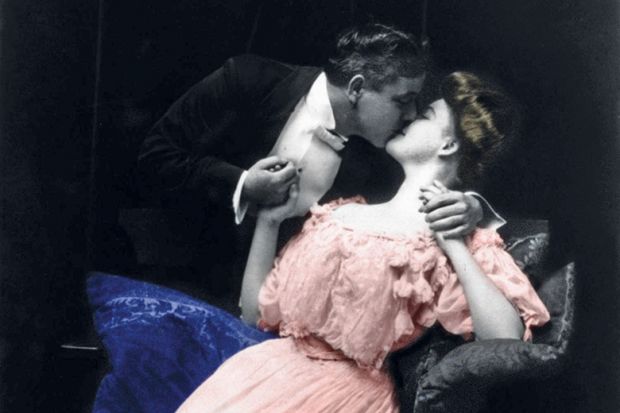Reader, I married him,” Jane Eyre famously says of Mr Rochester near the end of Charlotte Brontë’s novel. But any discriminating reader might reasonably ask why – bearing in mind his bigamy, incarceration of his first wife, cruel flirtation with another woman and attempt to convince Jane to be his mistress.
What constitutes a bad romantic decision? How do we make irrational feelings intelligible? What does this longing to make sexuality an object for the reasoning mind tell us about the way in which we conceptualise desire?
These are some of the questions underlying Daniel Wright’s magisterial and remarkably lucid study of “bad logic” in Victorian fiction, where suspect justifications surrounding sexuality ought to be read not as mistakes, fallacies or symptoms of repression but rather as useful forms of reasoning through which novelists illustrate the complexities of desire.
Take another of the most famous lines in Victorian fiction: the moment in Emily Brontë’s Wuthering Heights when Catherine Earnshaw tries to explain her love for Heathcliff by declaring, “I am Heathcliff.” Wright, in a typically sensitive close reading, reminds us that it is in fact a tentative assertion, followed by a series of faltering explanations: “he’s always, always in my mind – not as a pleasure, any more than I am always a pleasure to myself – but as my own being.” What is Catherine trying to say here? That she’s always thinking about Heathcliff, so it feels as if he inhabits her mind? Or that his pleasures give her pleasure in a way that feels immediate rather than vicarious?
Her statement is, of course, a logical contradiction. Catherine isn’t really Heathcliff; it’s a more expressive way of saying I feel as though I were. Earlier, in trying to explain her attraction to a moody, obdurate outcast, she says: “I can’t do it distinctly – but I’ll give you a feeling of how I feel.” The contradictions, Wright suggests, “bring into view the place where the rational clarity of logic finds its aching limit point”.
The novels of Charlotte Brontë, Anthony Trollope, George Eliot and Henry James are each aligned with a form of bad logic – contradiction, tautology, vagueness and generality – that offers Wright “a set of logical problem-cases that are particularly good at revealing the hidden foundations and limit points of logic”. Bad logic maintains a connection to mechanisms of intelligibility – and so gives form to the formlessness, opacity and uncertainty of desire.
This is where Bad Logic obtains real urgency, for it takes desire’s need to be articulated as making a vital ethical claim. Logical thought is a particularly powerful interface between the individual and the social. Catherine, for example, has decided to marry Edgar Linton, despite her love for Heathcliff, so contradiction reveals her impossible position – “to be an embodied and idiosyncratic self with interests and desires and also to be a morally accountable and intelligible self” – which Wright reads not as a double bind but “as a potentially productive opportunity to renegotiate the terms and goals of social belonging”.
Wright’s discussion is largely restricted to the heterosexual marriage plot, but the association of logic, ethics and desire reveals his argument to be ineluctably informed by the strains of negative feeling central to recent queer theory. “What good is bad logic”, he asks in a thoughtful afterword, “when it comes to the…power to make intelligible sexualities that have been forcibly and violently silenced?” It is this attention to erotic energies and their struggle for articulacy that makes Bad Logic such a compelling intervention into a number of current debates in Victorian studies, and a striking declaration of fiction’s wider philosophical exigency.
Charlotte Jones is lecturer in English literature at St Hilda’s College, Oxford.
Bad Logic: Reasoning about Desire in the Victorian Novel
By Daniel Wright
Johns Hopkins University Press, 232pp, £40.50
ISBN 9781421425177
Published 1 May 2018
Register to continue
Why register?
- Registration is free and only takes a moment
- Once registered, you can read 3 articles a month
- Sign up for our newsletter
Subscribe
Or subscribe for unlimited access to:
- Unlimited access to news, views, insights & reviews
- Digital editions
- Digital access to THE’s university and college rankings analysis
Already registered or a current subscriber? Login







